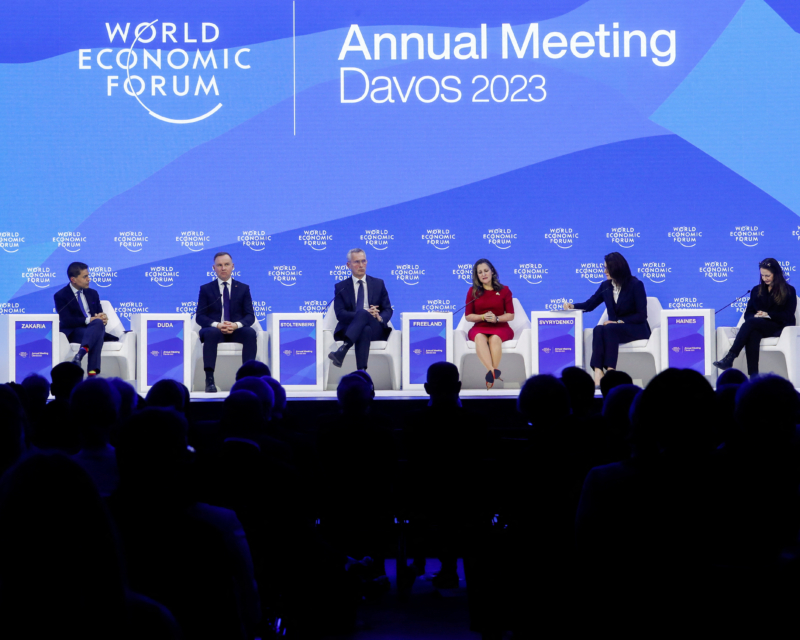Davos Dialogues – Navigating the Thorny Path to a Carbon-Neutral World
In the rarefied atmosphere of Davos, where global leaders and business titans converge to discuss the future, a clarion call for a global carbon tax resonated through the World Economic Forum (WEF). Tharman Shanmugaratnam’s impassioned proposal sparked a nuanced dialogue, exposing both the potential and pitfalls inherent in addressing the pressing issue of climate change.
Shanmugaratnam’s proposition for a synchronized global system of carbon taxes served as a wake-up call, shattering any illusions of a magic cure-all for the climate crisis. The stark realization that no silver bullet exists for this complex problem underscores the gravity of the environmental challenges we face.
Yet, in the corridors of power, the proposal encountered a symphony of support and skepticism. Mohammed Al–Jadaan, Saudi Arabia’s finance minister, stood at the crossroads of acknowledging the imminent risks posed by climate change and raising a pragmatic eyebrow at the feasibility of implementing a global carbon tax. The minister recognized the labyrinthine challenges involved in redirecting funds to developing countries, citing the entrenched political resistance from the developed world.
Emphasizing the struggles faced in climate finance, Al–Jadaan shed light on the delicate dance between political promises and tangible action, echoing the sentiments of many skeptics who question the ability of nations to translate lofty commitments into concrete results. The hurdles seem daunting, raising a pertinent question: Can a global carbon tax become a reality given the intricate web of political, economic, and social considerations?
Shanmugaratnam’s vision, while noble, collided with the harsh realities of global politics. The diversity of challenges faced by different regions, vividly illuminated by Al-Jadaan’s focus on Africa, further complicates the quest for sustainable development. Millions in Africa remain without basic electricity, and the call for a more nuanced approach, leveraging natural resources like gas for their transition, reveals the intricate tapestry of obstacles that must be navigated.
Enter Christian Lindner, Germany’s finance minister, with an alternative vision – a carbon market. Lindner’s proposition envisions a market-driven mechanism where countries could invest in renewable projects in Africa, compensating for emissions generated domestically. It’s a pragmatic suggestion, emphasizing the practicality and adaptability of a carbon market as a potential solution to the climate conundrum.
Davos Dialogues – Navigating the Thorny Path to a Carbon-Neutral World
The discussions at Davos laid bare the thorny path that lies ahead The Davos discourse serves as a stark reminder that unraveling the knot of climate change requires not only a shared commitment but also a deep-seated willingness to explore innovative solutions beyond the confines of traditional tax structures.
In the pursuit of a sustainable future, finding common ground among nations with diverse interests remains an elusive yet imperative goal. Davos, with all its complexities and divergent perspectives, stands as a crucible where the world’s leaders must forge a collective path forward – a path that demands collaboration, adaptability, and a shared willingness to explore new frontiers in the fight against climate change.






